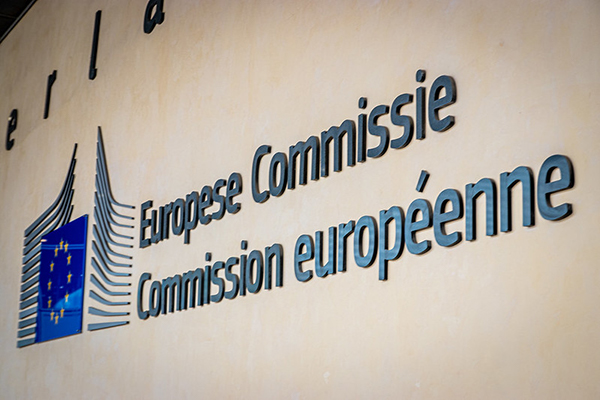Original version in Spanish: ¿Más allá del multilateralismo? COVID-19, autonomía estratégica europea y política exterior española.
Theme
EU and Spanish foreign policy were undergoing a transition from multilateralism to strategic autonomy to adapt to an increasingly competitive geopolitical environment. However, COVID-19 raises questions about whether international politics will be characterised by a renewal of multilateralism or an aggravation of great power competition.
Summary
This paper discusses the potential impact of COVID-19 on EU foreign policy, and does so from a Spanish perspective. Specifically, it unpacks two flagship concepts in EU and Spanish foreign policy –multilateralism and strategic autonomy– and critically assesses their utility in a post-COVID-19 context.
Analysis
The geopolitical context before COVID-19
The impact of the COVID-19 pandemic on EU and Spanish foreign policy cannot be viewed in isolation from geostrategic dynamics that were already in train before the crisis. In recent years we have witnessed a confrontational turn in international politics, best illustrated by the intensifying great-power competition between the US and China and the mounting difficulties faced by the multilateral systems in responding to the challenges of globalisation.1 Critically, the US and China have extended their competition to the multilateral domain and tried to leverage different organisations and norms accordingly. Today, the effects of Sino-US competition span most policy areas (eg, trade, military, technology, diplomacy, information) and geographical regions –even though East Asia remains the epicentre, Sino-US competition is also permeating many other regions, including Europe, the Middle East, Latin America and the rest of Asia)–.
Partly in response to these broader geopolitical transformations, EU foreign policy has taken a ‘realist’ turn in recent years. Thus, the 2016 European Global Strategy affirmed the need for more pragmatism in the EU’s external action, and set out an approach based on ‘principled pragmatism’ and ‘European strategic autonomy’ to promote action in partnership with others when possible and otherwise alone.2 In a similar vein, Commission President Ursula von der Leyen has called for a ‘geopolitical approach’ to ensure greater coherence between the EU’s internal and external policies.3 More recently, the European Commission has used the term ‘technological sovereignty’ to address the issue of European strategic autonomy in technology, industry, digitalisation, data and artificial intelligence in the face of growing global competition in those domains.4 Finally, Josep Borrell, the High Representative of the Union for Foreign Affairs and Security Policy, has repeatedly alluded to the EU’s need to adapt to an increasingly competitive international environment by ‘rediscovering the language and logic of power’.5
Admittedly, the concept of ‘European strategic autonomy’ was introduced by the Global Strategy to respond to the EU’s need to play a growing role in the areas of security and defence. Yet, such a concept appears to have taken on a new dimension in the face of mounting Sino-US competition, having become associated with the crafting of an alternative space in international politics –potentially led by the EU itself–. To be sure, the very concept of European strategic autonomy need not imply geopolitical equidistance between the US and China, which would prove extremely challenging anyway given the depth of the shared interests and values that bring Europeans and Americans together. Simply put, European strategic autonomy means that EU policies towards the US and China cannot be reduced to some expectation to ‘take sides’ but must instead be based on European interests in relation to each of the parties. More broadly, as the US and China offer a grammar of great power competition and rivalry, the EU would aspire to recover the predictability that multilateral norms and institutions bring to international politics. In doing so, it aims to reconcile European strategic autonomy with the renewal of multilateralism, all the while explicitly rejecting the frame offered by ‘Sino-US competition’.
For its part, Spain also acknowledges the need for a “strategic adaptation to a more geopolitical world”, even though it prefers to speak of a “nodal approach” to foreign policy. The term “nodal” – coined by the Obama administration and used by former Secretary of State Hillary Clinton and in the National Military Strategy of 2011- seeks to capture the difficulties faced by international organisations to adapt to an increasingly competitive international context, and entails the formulation of policy responses based on ad hoc coalitions of interest, which may vary in function of a dynamic context.6 Thus, nodality implies flexibility, and has the advantage of allowing foreign policy to overcome the paralysis of any given node or institution by shifting attention to more receptive nodes. Yet, it entails risks for multilateral institutions, which may become increasingly marginalised to the detriment of flexibility. Against this backdrop, Spain’s approach is to continue to bet on the EU’s constitution as a go-to node in a renewed multilateral network.7
Enter COVID-19
The pandemic has challenged our understanding of concepts like strategic autonomy and multilateralism, which are now being repeatedly applied by both Spain and the EU as part of the response to the global health challenge. Both Spanish Foreign Minister Arancha González Laya and EU High Representative/Vice President Josep Borrell have repeatedly alluded to the “global and transnational nature of the crisis”, the need to pursue “global and multilateral solutions” and “avoid quarrels and blame games”. In their view, the pandemic underscores the fact that “we are all in the same boat”, and the importance of rowing together by strengthening international cooperation and betting on multilateral solutions.8 Relatedly, the pandemic has spurred calls for a greater EU effort in responding to its economic ripple effects. Critically, given that the EU had not yet completed its transition towards a more ‘geopolitical’ and interest-based approach to foreign policy, an important question comes up: is the EU pivoting back towards a more multilateral and normative approach to international politics or is its renewed emphasis on multilateralism restricted to health policy?
Against this backdrop we set out to critically probe the strategic value of two flagship concepts in EU and Spanish foreign policy –multilateralism and strategic autonomy– and evaluate their strengths and weaknesses in light of a dynamic geopolitical context.
Autonomy is a prerequisite for external action: without it, we depend on others. Multilateralism is often the refuge of the weak –yet, autonomous actors can make multilateralism more affective, and allow it to operate in line with their strategic interests–. In other words, the exercise of autonomy focuses on one’s own interests; it requires flexibility and ‘nodal’ policies, and even bypasses multilateralism whenever it proves ineffective. It is precisely their strategic autonomy that allows the US and China to exert influence in multilateral forums in pursuit of their national interests.
The COVID-19 crisis has shown that, without autonomy in health policy, neither the EU nor Spain are able to contribute to the multilateral response they are now promoting. Similarly, the multilateral response to the crisis will not improve unless the EU and Spain can become more autonomous in the provision of assistance. Autonomy is thus a fundamental objective of external action, both for cooperating with others as part of multilateral frameworks and for acting individually, as set out in the European Global Strategy.
Viewing autonomy as an end (as opposed to a means) will allow the EU and Spain to leverage their external action through multilateral venues when necessary (multilateralism as a means). To be sure, the EU has, as a normative power, benefitted from the support of multilateral organisations and frameworks in advancing its interests and vision of global governance. However, mounting geopolitical and great power competition has weakened the multilateral system, and left the EU lamenting its lack of autonomy in areas where it can no longer count on multilateral support. As such, it is natural for the EU and Spain to aspire to a renewal of multilateralism in challenging situations like the COVID-19 pandemic. Yet there are doubts as to whether the interest in multilateralism extends beyond its instrumental use in tackling the pandemic or whether this will provide the vital spark to correct the drift of multilateralism, allowing it to be reasserted as the framework of reference for EU and Spanish foreign policy.
At present, calls to ‘renew multilateralism’ appear to have dominated the EU’s response to the COVID-19 crisis, even displacing Borrell’s previous references to ‘rediscovering the language of power’ or Von der Leyen’s ‘geopolitical approach’. Thus, the pursuit of multilateralism seems to have reclaimed its status atop the EU’s strategic priorities. In such a scenario, strategic autonomy would become a means to the end of renewing multilateralism, thus inverting the ‘natural’ order between autonomy (end) and multilateralism (means). But this proposition is inherently problematic. After all, multilateralism requires the power (and autonomy) of actors to be able to respond to collective challenges. As such, European and Spanish autonomy should be the number one priority of external action, especially in a geopolitical context such as that prior to COVID-19.
Any attempt by the EU to bet on the resetting of multilateralism assumes that the pandemic –thanks to its global and transnational nature– can usher in a period of renewed optimism towards multilateral governance, and that a more ‘geopolitical approach’ based on ‘the language and logic of power’ can be put on ice. But this is a risky proposition, especially when the two most important global powers are locked in a multidimensional geopolitical competition driven by zero-sum dynamics. Going forward, the EU faces an important dilemma: can it leverage COVID-19 to swing back to yesterday’s ‘multilateralism first’ approach or should it use it to accelerate its transition towards a new, power-centric paradigm in foreign policy?
To be sure, COVID-19 also poses an obstacle to the objective of European strategic autonomy, particularly in the areas of foreign policy, security and defence. Critically, public spending priorities are likely to shift towards budgetary lines aimed at reducing or mitigating the direct effects of the pandemic on public health, as well as its socio-economic ripple effects. Although pandemics know no borders and any response to them must draw on both internal and external policy instruments, priorities ought to be established. In that context, we should expect a shift of EU and Spanish political attention and economic resources to domestic matters rather than foreign policy. Nor should we rule out cuts or delays in defence programmes and budgets, which are at the heart of European strategic autonomy –or, at the very least, a slowdown in the rise in defence spending experienced in recent years, both in Spain and EU-wide–.
Some may argue that the less resources available for defence, the more incentives and opportunities for spending and developing capabilities collectively, ie, within the EU framework. However, following the 2008 financial crisis and subsequent defence budgetary crisis, member states behaved in exactly the opposite way: each country cut unilaterally in line with its priorities, without taking into account the combined impact on European strategic autonomy. Furthermore, it is unlikely that those great powers currently immersed in a process of geostrategic competition (ie, the US, China and Russia) will engage in significant defence cuts in the coming years, let alone in the same way as Europeans. Indeed, crossed accusations, disinformation campaigns and efforts to monopolise research and medical aid outside multilateral organisations show how COVID-19 is being instrumentalised as yet another dimension of this rivalry. This raises questions about the future of European strategic autonomy, which could become further endangered if the pandemic leads to an erosion of intra-European political trust and cohesion.
Implications for Spain
Spain clearly benefits from multilateral cooperation, both at the European and global levels. However, the question arises as to whether the country should delegate its strategic thinking and autonomy to the EU or rather seek to increase its own national strategic autonomy by leveraging different multilateral and bilateral channels in a diversified manner. In this regard, it is important to bear in mind that EU member states continue to have significant differences about the development and direction of EU foreign policy, as well as the absence of a realistic roadmap for a genuine political union within the EU framework (a prerequisite for strategic autonomy). Given these circumstances, it would seem prudent for Spain to avoid putting all its eggs in the European strategic autonomy basket and instead look at the EU as a tool –perhaps even a central one– in pursuit of its own strategic interests.
From a Spanish perspective, then, it becomes critical to identify the contours of national and European strategic autonomy. For example, faced with the possibility of defence budget cuts, which capabilities should be prioritised at the national level and which at the European level? Likewise, Spain should ensure that any initiatives or capabilities aimed at furthering ‘European strategic autonomy’ should not result in the strengthening of the autonomy of some member states at the expense of others. Thus, for instance, Spain can leverage its relationships with key allies like the US to strengthen its negotiating position within EU foreign and defence policy –this seems to be the approach followed by countries like Italy, Poland, the Netherlands and Sweden, all of which tend to resort to the US or the UK to push back against the spectre of a Franco-German dominated European defence industrial base–. Indeed, Spain should identify a number of relevant nodes or partners both within and without the EU so as to be able to leap from one node to another as its own interests and national autonomy require.
Conclusions
Between multilateralism and strategic autonomy
To what extent has multilateralism become an end in itself in the context of Spanish and EU foreign policy? Should Spain and the EU continue to bet the house on multilateralism no matter what? Should efforts to reset multilateralism take priority over all other European and Spanish interests and values, such as the pursuit of strategic autonomy?
To be sure, multilateralism can be strategically attractive for those actors who lack the resources or power to defend their interests autonomously. This may well explain why Spain and many other EU member states reflect a multilateral reflex of sorts. Moreover, and in light of an increasingly competitive and uncertain international environment, the promise of multilateralism offers small and medium powers a reliable and commonly accepted framework, ie, one that provides opportunities for them to participate in the design of shared rules, norms and institutions. Yet, if great power competition leads to the paralysis of multilateral venues, small and medium states can get caught between their lack of autonomy and a dysfunctional multilateralism.
As we glimpse into the post COVID-19 world, there seem to be few signs that suggest a de-escalation of great power competition, with the possible and partial exception of the health sector. Nor is there any reason why a resetting of multilateralism post-COVID-19 should resemble the sort of multilateral framework that took root in a context defined by US and Western power. And there is a big difference between a multilateral framework dominated by liberal Western powers who share Spanish and EU interests and values –as was the case in the 1990s and even at the start of the 2000s– and one characterised by the growing influence and values of non-democratic and autocratic powers. Spain and the EU should therefore critically re-assess the strategic value of multilateralism –especially the notion of multilateralism as an end– not least given China’s systematic (rhetorical?) bet on multilateralism or, for that matter, the US’s own scepticism vis-à-vis that very concept. Neither China nor Russia will abandon multilateral forums or their rhetorical commitment to multilateralism because they practice –and always have done– a selective and nodal approach that seeks to leverage different forums and norms as instruments in pursuit of their own interests while rejecting or ignoring them when they stand in their way.
In the end, we must ask to what extent the multilateral reflex that continues to dominate European and Spanish foreign policy thinking provides for a realistic and appropriate framework. The EU and Spain run the risk of misreading the geopolitical implications of COVID-19 that, rather than offer a window of opportunity for a resetting of multilateralism, might aggravate existing dynamics of great power competition and global economic decoupling. Against that backdrop, and notwithstanding the potential that multilateral forums and institutions continue to offer to advance Spanish and European interests on many fronts, it appears unwise for the EU and Spain to embrace multilateralism as the ordering principle of their foreign policies.
Félix Arteaga
Senior Analyst, Elcano Royal Institute
Luis Simón
Senior Analyst and Director of the Elcano Royal Institute’s Brussels Office | @LuisSimn
1 See, for example, Graham Allison (2018), Destined for War: Can America and China Escape Thucydides’s Trap?, Mariner Books, Boston and New York.
2 ‘Shared vision, common action: a stronger Europe – A Global Strategy for the European Union’s Foreign and Security Policy’, June 2016.
3 Ursula von der Leyen (2019), ‘Speech in the European Parliament Plenary Session’, Strasbourg, 27/XI/2019.
4 See, for example, ‘Shaping Europe’s digital future’, 19/II/2020.
5 See, for example, Josep Borrell (2020), ‘Embracing Europe’s power’, Project Syndicate, 8/II/2020.
6 Felix Arteaga (2012), ‘From multipolarity to multinodality in international security’, Expert Comment, nr 19/2012, Elcano Royal Institute.
7 ‘Comparecencia de la ministra González Laya, ante la Comisión de Asuntos Exteriores’, 20/II/2020.
8 See, for example, ‘Coronavirus: Statement by the High Representative/Vice-President Josep Borrell following the EU leaders’ video conference’, Brussels, 27/III/2020; Arancha González Laya (2020), ‘As we fight the pandemic, it’s clear the world wasn’t ready. Here’s how to fix that’, The Washington Post, 25/III/2020.




